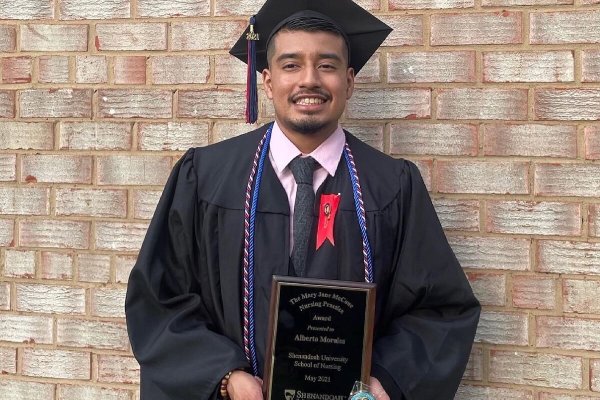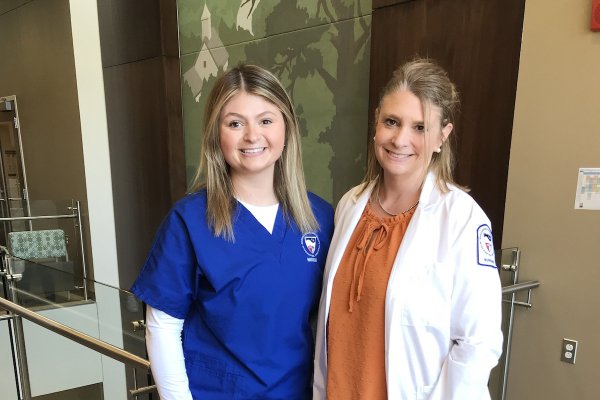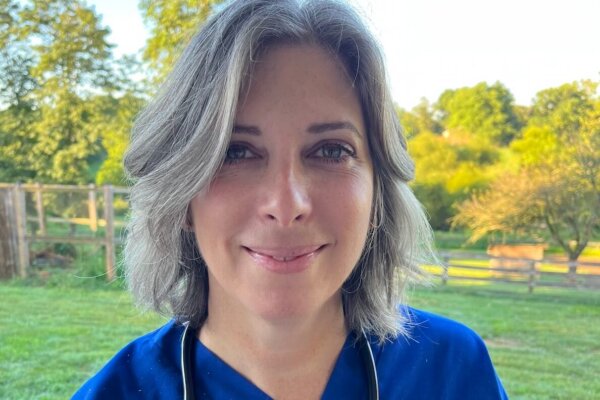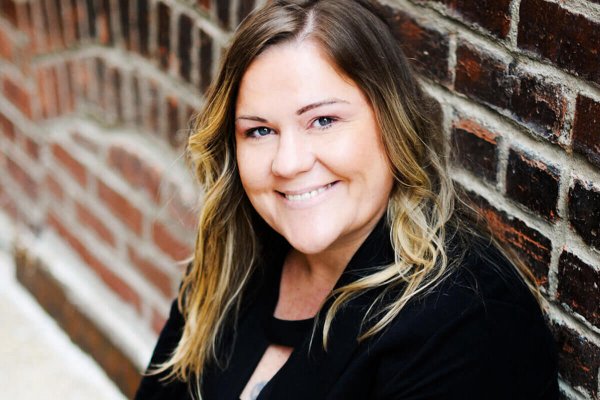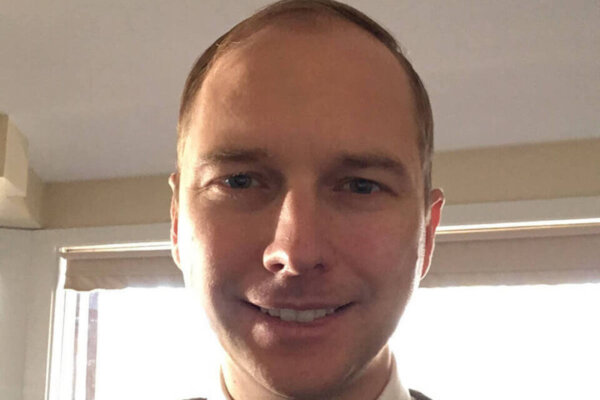Earn your Doctor of Nursing Practice in just two years through online, asynchronous classes
DNP Concentrations
The Doctor of Nursing Practice program is open to those who have a Master of Science in Nursing degree in a clinical field. The DNP program has concentrations in:
- Family Nurse Practitioner (74 credits / 1100 clinical hours)
- Psychiatric Mental Health Nurse Practitioner (75 credits / 1100 clinical hours)
Post-Graduate DNP
The Post-Graduate DNP program is open to all advanced practice registered nurses (nurse practitioners, certified nurse-midwives, clinical nurse specialists, and certified registered nurse anesthetists) who hold a master’s degree and are nationally certified as an APRN (NP, CNS), CNM or CRNA. The program consists of 35 credit hours and 500 clinical hours.
Key points of the programs
- Cohorts are established in August.
- This program is offered in a fully online asynchronous format.
- Clinical placement is a collaborative process between the student and the faculty. Clinical days will be scheduled at the convenience of the facility hosting the student.
- Alumni are eligible for a tuition discount.
Graduate Nursing Programs at Shenandoah
Eleanor Wade Custer School of Nursing is committed to providing an outstanding education to nurses at all levels— from nurses seeking a master’s degree or advanced practice certificates to existing advanced practice nurses seeking doctoral-level training. Our programs are dynamic and responsive to the needs of our students and the health care industry. Shenandoah Nursing offers graduate level classes in a fully online format. Our goal is to prepare and challenge you for that next step in your professional career. We’re excited to share our programs with you.
BSN-to-DNP Curriculum (On Hold)
BSN-to-DNP (On Hold)
The BSN-to-DNP pathway is on hold and is not accepting applications for fall 2024. We are currently accepting applications to our MSN and our Post-Graduate DNP programs for fall 2024 and encourage you to reach out to the Office of Graduate Admissions if you have any questions.
BSN-to-DNP graduates will be prepared to practice as a Family Nurse Practitioner or Psychiatric Mental Health Nurse Practitioner, and will be eligible to sit for the Family Nurse Practitioner or Psychiatric Mental Health Nurse Practitioner certification exam. Gain the advanced education, competencies, and experiences necessary to manage health care in a safe, effective, and efficient manner. The program can be completed in 9 consecutive semesters, including summers (three full years).
The BSN-to-DNP degree requirement is 74 credit hours for FNP and 75 credit hours for PMHNP, with a grade of “B” or better in all courses. The clinical practicum requirement is 1,100 clinical hours for each track. Core and NP general courses are primarily one day per week and offered online in a synchronous format. Immersion days may be required. This program can be completed in nine consecutive semesters, including summers (three full years).
The degree requirement is 74-75 total credit hours. Clinical practicum is approximately 1,100 clock hours.
Core Courses
- Advanced Concepts in Physiology & Pathophysiology 3
- Analytical Methods (Stats) 3
- Roles & Issues of the DNP 3
- Epidemiology & Population Health 3
- Advanced Health Promotion & Assessment Across the Lifespan 4
- Advanced Pharmacology & Therapeutics 3
- Research & Evidence Based Practice 4
- Informatics & Quality Improvement 3
- Translational Research 3
- Project Seminar (125 Clinical Hours) 1/1
- Grant Writing 1
- Project Planning (125 Clinical Hours) 2/1
- Advanced Nurse Practitioner Role Development 2
- Clinical Research Proposal 3
- Leadership & Policy 3
- Project Implementation (250 Clinical Hours) 1/2
- Data Analysis 3
- Project Analysis & Dissemination (clinical hours if needed) (Continue to register for 2 credits until the project is completed) 2
Total credits: 51
Family Nurse Practitioner Specialty
- Mental Health in Primary Care 3
- Primary Care of Families: Chronic 3
- Primary Care Practicum I (180 Clinical Hours) 3
- Primary Care of Families: Acute 3
- Primary Care Practicum II (180 Clinical Hours) 3
- Primary Care of Women & Children 3
- Diagnostics & Procedures 1
- Primary Care Advanced Practicum (240 Clinical Hours) 4
Total FNP Credits: 23
Psychiatric Mental Health Nurse Practitioner Specialty
- Foundations of Psychotherapy 3
- Behavioral Neuroscience & Psychopharmacology 3
- Management of PMH: Adult (120 Clinical Hours) 2/2
- Management of PMH: Geriatric 2
- Management of PMH: Child (120 Clinical Hours) 2/2
- Management of Complex Mental Health: Lifespan (120 Clinical Hours) 2/2
- Advanced PMH Practicum (240 Clinical Hours) 4
Total PMH Credits: 24
Post-Graduate DNP Curriculum
Post Graduate -DNP
The Post Graduate -DNP degree requirement is 35 credit hours, with a grade of “B” or better in all courses. The clinical requirement is 500 clinical hours. All coursework is completed online in an asynchronous format. This program can be completed in six consecutive semesters, including summers (two full years).
The degree requirement is 35 total credit hours. Clinical Practicum is approximately 500 clock hours.
Courses
- Roles & Issues of the DNP 3
- Analytical Methods (Stats) 3
- Epidemiology & Population Health (clinical hours if needed) 3
- Translational Research 3
- Project 1 Seminar (125 Clinical Hours) 1/1
- Project Planning (125 Clinical Hours) 2/1
- Grant Writing 1
- Informatics & Quality Improvement 3
- Clinical Research Proposal 3
- Data Analysis 3
- Leadership & Policy 3
- Project Implementation (240 Clinical Hours) 1/2
- Project Analysis & Dissemination (clinical hours if needed) (continue to register for 2 credits until the project is completed) 2
Total credits: 35
Admissions & Application Information
We’re excited you’re interested in one of our graduate nursing programs! Shenandoah reviews applications continuously starting in January until the cohort is full. Your application will be reviewed once all your documentation has been submitted. Students submitting completed applications before our priority deadlines will be considered first.
Admission Deadline:
Priority: February 15
Final: April 15
Program Prerequisites
- Post-Baccalaureate DNP
- A bachelor’s degree in nursing (BSN) from a CCNE or an ACEN accredited institution. Recommended 3.0 cumulative GPA.
- Applicants must have completed or will complete the following prerequisite course requirements prior to enrolling at Shenandoah:
- Undergraduate Health Assessment, Pathophysiology, and Pharmacology courses. Recommended grade of “B” or better.
- Undergraduate Statistics course with a grade of “C” or better within the last five years.
- Undergraduate Chemistry course with a grade of “C” or better.
- Post-Graduate DNP
- A master’s degree in nursing (MSN) from a CCNE or an ACEN accredited institution. Recommended 3.0 cumulative GPA.
- Applicants must have completed or will complete the following prerequisite course requirements prior to enrolling at Shenandoah:
- Graduate Statistics course with a grade of “C” or better within the last three years.
Admissions Requirements
- Graduate application with $30 application fee
- Unofficial transcripts from all institutions for initial admission
- Unencumbered RN license (multi-state preferred)
- Current resume/CV
- Three letters of recommendation:
- One from previous faculty (if graduated in the last five years)
- Two from professional references to attest to clinical experience
- An interview with graduate nursing faculty will be required
- Essay (750 words):
- Why are you choosing to pursue the BSN-DNP program? OR Why are you choosing to pursue the DNP?
- Provide a brief description of an idea for your DNP project.
- Provide documentation of direct patient care:
- BSN-DNP: one year of direct patient care prior to beginning specialty courses
- Post-Grad DNP: 2,080 RN or APRN direct patient care hours. NP applicants must also be able to verify any previous master’s degree precepted clinical hours.
- For Post-Grad DNP: copy of Advanced Practice Nursing certification as applicable. Applicants without national certification will be individually evaluated and must submit evidence of their specialty expertise.
- If admitted, up-to-date immunization and health records, a criminal background check, a urine drug screen, and CPR (from AHA only) will be required.
- Language proficiency must be met. Submission of TOEFL, IELTS, PTE, or Duolingo English test may bee required. See our policy for full details. International Students Admissions
- For international students who require a visa, due to limited on-campus hours, F-1 visas are not issued for this program.

